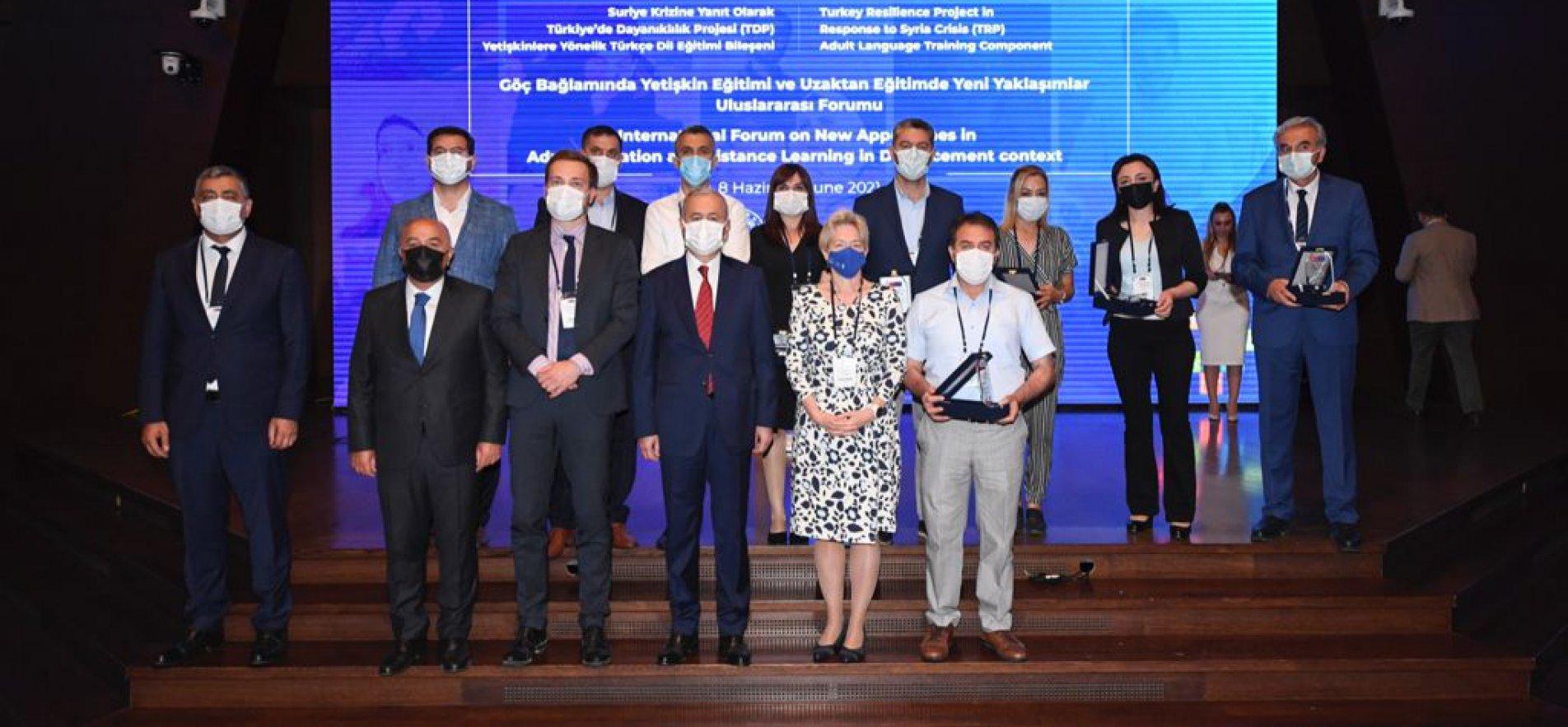DEPUTY MINISTER SAFRAN ADDRESSED THE "INTERNATIONAL FORUM ON NEW APPROACHES IN ADULT EDUCATION AND DISTANCE LEARNING IN DISPLACEMENT CONTEXT"
Deputy Minister of National Education Mustafa Safran made the opening of "International Forum on New Approaches in Adult Education and Distance Learning in Displacement Context" forum organized by the Ministry of National Education and the United Nations. Safran said during his address that, "Due to the Syrian crisis which has been continuing approximately for the last decade, we are doing everything in our power to provide education to millions of Syrians that we welcomed as a part of our hospitality culture. We attach serious importance to teach Turkish language in an effort to help to adapt to the society quickly and develop policies within this context."The "International Forum on New Approaches in Adult Education and Distance Learning in Displacement Context" organized in the TOBB Conference Hall as a part of "Turkey Resilience Project in response to the Syria Crisis (TRP)" and its Language Education for Adults component which is carried out by the Ministry of National Education and the United Nations Development Program (UNDP) and funded by the European Union was held.
Making a speech at the opening of the forum, Deputy Minister of National Education Mustafa Safran stated that their goal is to raise awareness about lifelong learning.
Safran noted that lifelong learning became systematic in Turkey with the establishment of the Public Education Branch in 1926 and it was reinforced with the establishment of Directorate General for Lifelong Learning in 2011 adding that, "We are working in an effort to reinforce this mentality by opening lifelong learning courses upon demand from our people in every city, district, neighborhood and street."
Stressing that women, children, seniors, unemployed, handicapped and refuges are prioritized in lifelong learning courses, Safran said, "Due to the Syrian crisis which has been continuing approximately for the last decade, we are doing everything in our power to provide education to millions of Syrians that we welcomed as a part of our hospitality culture. We give serious importance to teach Turkish language in an effort to help them adapt to the society quickly and develop policies within this context."
"Most important element in surviving in a foreign country is learning the language"
Safran noted that the Covid-19 pandemic caused negative impact on health, economy and education adding that, "We have founded Lifelong Learning Academy in an effort to provide opportunity to our people to benefit from distance learning during this period. Our services which began with hygiene training, digital literacy and marketing, Turkish language courses expanded. We are aware that the most important element in surviving in a foreign country is learning the language."
UNDP Turkey Resident Representative Louisa Vinton and EU Delegation to Turkey Counsellor and Head of Section of the Facility for Refugees in Turkey Libor Chlad also made speeches at the opening.
No Poverty Advocate of UNDP Turkey and soccer player in the French 1st football league Yusuf Yazıcı and Director of the UNDP Regional Bureau for Europe and the CIS Mirjana Spoljaric Egger sent video messages to the opening ceremony of the forum.
In addition to lifelong learning Turkish language courses for 52 thousand adult Syrians who are under temporary protection in Turkey, the forum focused on the situation of education before and after the pandemic, innovative approaches in education and new technologies in learning.
Following the keynote speeches, provincial coordinators of the project in Adana, Bursa, Gaziantep, Hatay, İstanbul, İzmir, Kilis, Konya, Mersin and Şanlıurfa received certificates and plaques.



















